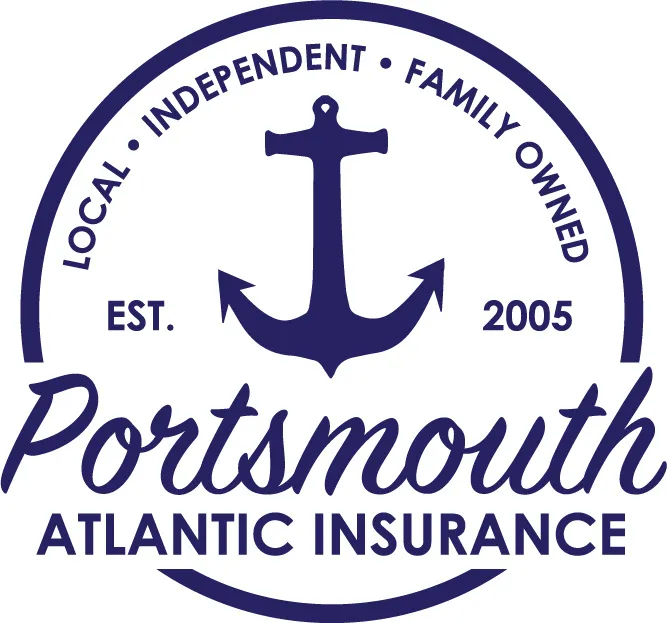Condominium Insurance in Portsmouth or Stratford
Welcome to Portsmouth Atlantic Insurance! As trusted insurance agents serving the residents of New Hampshire, we understand the importance of protecting your valuable investments, including your condominium unit. Condominium insurance, also known as HO-6 insurance, is a crucial aspect of safeguarding your home and assets. In this comprehensive guide, we’ll explore the ins and outs of condominium insurance, what it covers, and how to make informed decisions to secure the right policy for your needs.
The Three Main Coverages in Condominium Insurance
Condominium insurance policies offer various coverages, but the three primary coverages that deserve your attention are structural coverage, personal property coverage, and liability coverage.
1. Structural Coverage
Structural coverage plays a pivotal role in safeguarding the physical structure of your condominium unit from covered perils. However, the extent of this coverage can vary from one policy to another, depending on your specific circumstances. Here’s what you should consider:
2. Personal Property Coverage
Personal property coverage is designed to protect your belongings within your condominium. This includes a wide range of items, from everyday essentials like clothing and appliances to valuable assets such as electronics and furniture. When assessing your policy’s personal property coverage, look for comprehensive protection that encompasses all your possessions.
3. Personal Liability Coverage
Personal liability coverage is crucial for protecting you and your family members from potential legal and financial liabilities resulting from harm caused to others. This harm can take various forms, including property damage, physical injuries, or non-physical injuries like damage to a person’s reputation. Evaluate your personal liability exposure and choose a policy that offers adequate coverage for your peace of mind.
Understanding the Relationship Between Condo Insurance and Condo Association Insurance
As a resident of a condominium, it’s essential to recognize how your individual condo insurance policy complements your condo association’s master policy, also known as an HOA policy.
Key Takeaways:
Exploring Condo Insurance (HO-6) Coverage
Condo insurance, often referred to as HO-6 insurance, includes several essential coverages that you should be aware of:
1. Dwelling Coverage
Dwelling coverage safeguards the structure of your condominium unit, including any upgrades you’ve made, such as built-in appliances and custom flooring. The amount of dwelling coverage you need depends on your HOA master policy’s coverage. If your master policy offers comprehensive protection (known as all-in coverage), you may not need additional dwelling coverage.
2. Personal Property Coverage
Personal property coverage extends protection to your belongings, ensuring they are covered in the event of damage, theft, or destruction caused by covered perils.
3. Loss of Use Coverage
Loss of use coverage assists with additional living expenses, such as hotel stays or transportation costs, if your condominium becomes uninhabitable due to a covered loss.
4. Loss Assessment Coverage
Loss assessment coverage helps cover any remaining costs if the condo’s shared spaces or building exterior is damaged, and the master policy doesn’t fully cover the expenses. For example, if the master policy covers $500,000, but the damage totals $525,000, you may be responsible for the remaining $25,000. Loss assessment coverage can help alleviate this financial burden.
5. Personal Liability Coverage
Personal liability coverage is crucial for covering medical or legal expenses if you are held responsible for causing injury or property damage to others within or outside your condominium unit.
6. Medical Payments Coverage
Medical payments coverage takes care of medical expenses, such as X-rays, ambulance rides, or surgeries, if someone is injured within your condo, regardless of fault.
Condo Association or HOA Master Policy Coverage
Your condo association, or homeowners association (HOA), typically maintains a master policy to protect the building and common areas. While the coverage provided by these policies can vary, they usually include:
The amount of dwelling coverage you’ll require in your individual condo insurance policy depends on your HOA master policy’s coverage. Master policies generally fall into one of three categories:
1. Bare Walls Coverage
2. Single Entity Coverage (Walls-In or Studs-In Coverage)
3. All-In Coverage
Determining the Cost of Condo Insurance
The average cost of condo insurance nationwide stands at approximately $506 per year, according to the National Association of Insurance Commissioners (NAIC). However, the cost of your condo insurance in New Hampshire may vary based on factors such as your condo’s location, square footage, building type, and the coverage included in your HOA master policy.
Here’s a breakdown of average annual condo insurance rates by state, as reported by the NAIC:
Optional Condo Insurance Coverages
While condo insurance provides essential coverage, there are certain exclusions that you may want to address by purchasing additional policies or adding specific coverages to your condo policy:
Flood Insurance
Condo insurance typically does not cover water damage resulting from flooding. If you reside in an area prone to hurricanes or flood damage, it’s advisable to consider purchasing a separate flood insurance policy.
Earthquake Insurance
Condo insurance also does not include coverage for earthquake damage. Depending on your location, you can either add earthquake coverage to your condo policy for an additional premium or purchase a standalone earthquake insurance policy.
Second Home Insurance
Condo insurance is primarily designed for owner-occupied homes. If your condo is vacant for more than 30 days or serves as a second or vacation home, you may require second home insurance to ensure adequate protection during extended periods of vacancy.
Short-Term Rental Coverage
If you plan to rent out your condo, even on a part-time basis (e.g., as an Airbnb), your base condo insurance policy may not provide sufficient coverage. Consider adding short-term rental coverage to protect your property and guests adequately. Specialty carriers may also offer short-term rental insurance.
